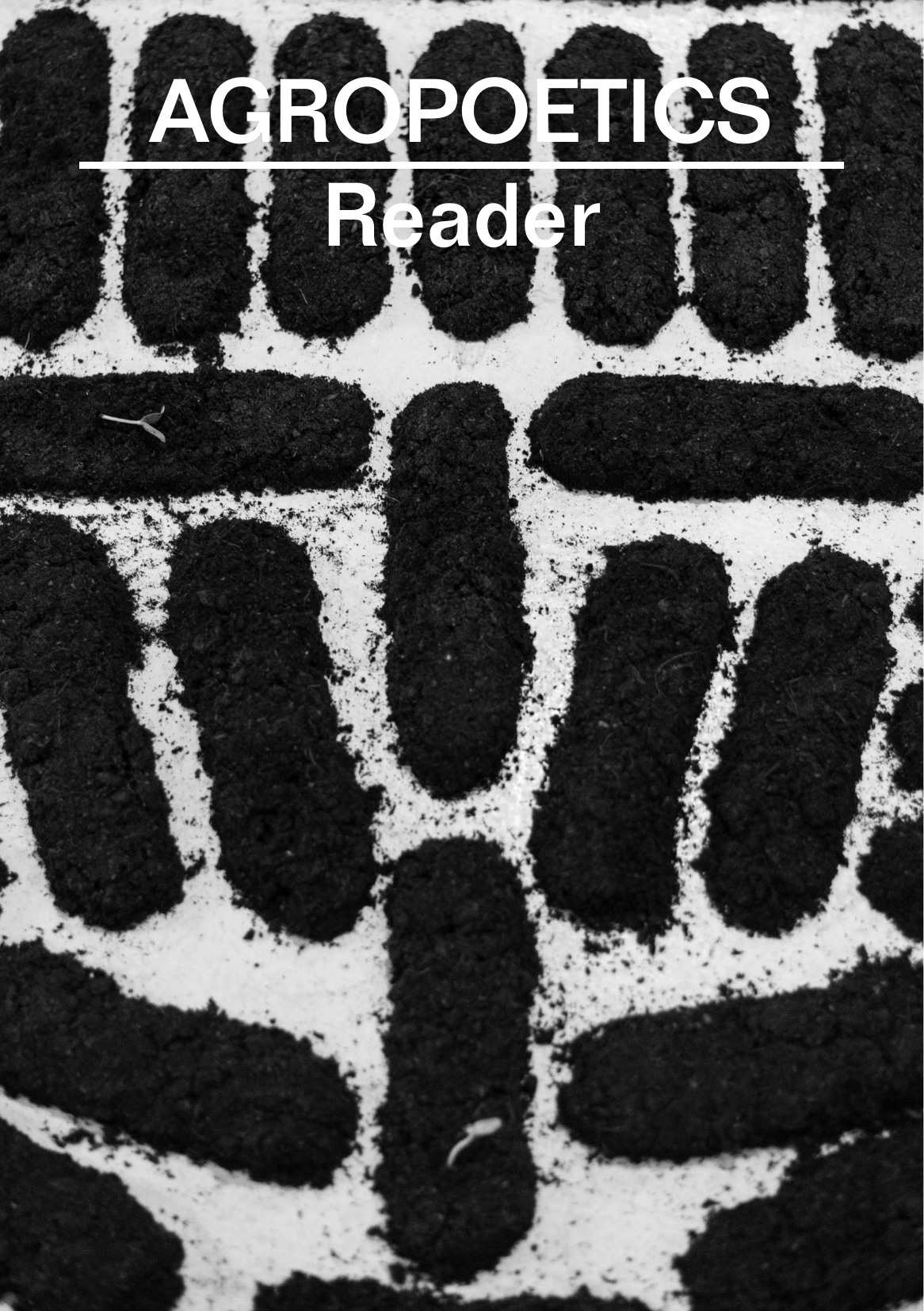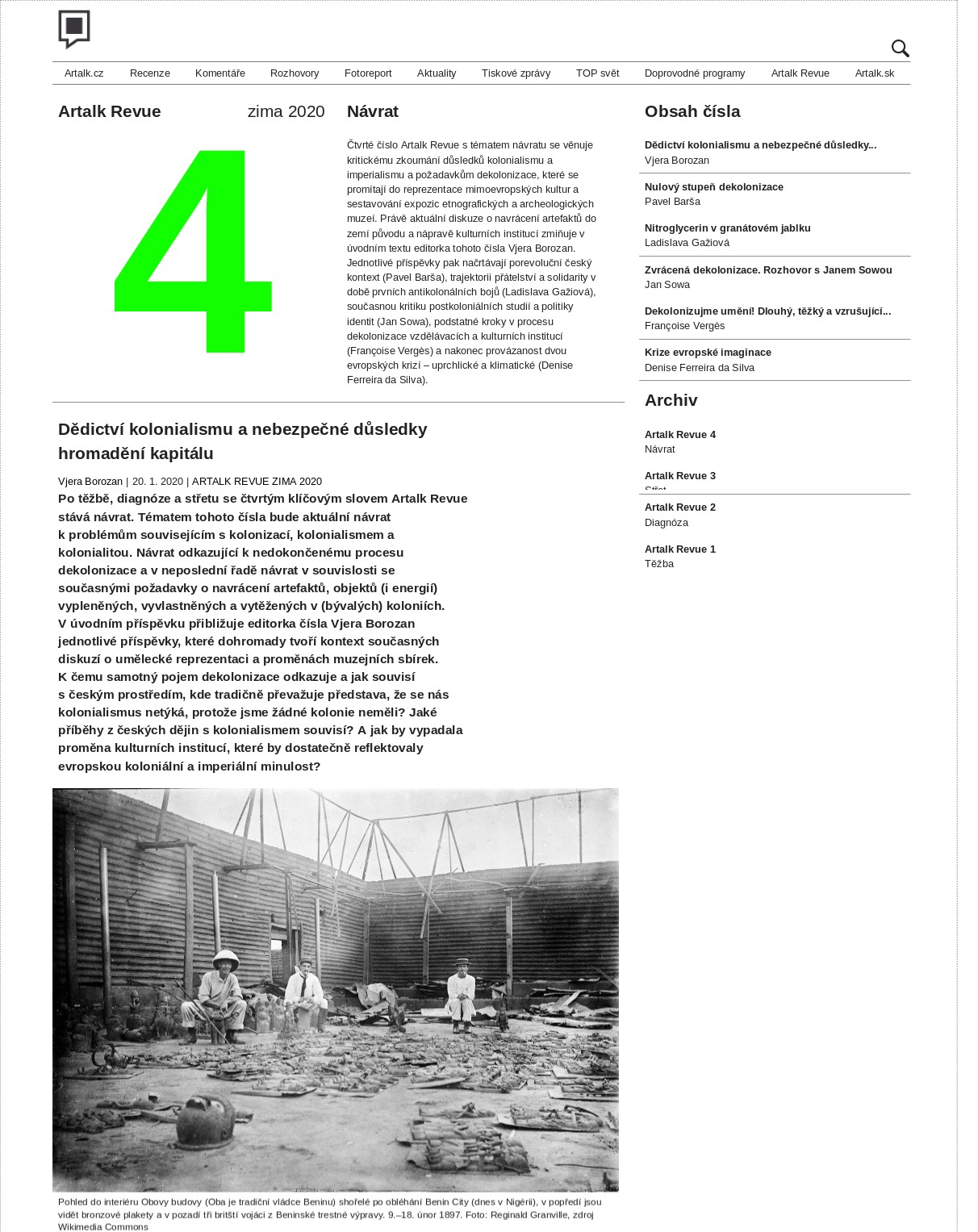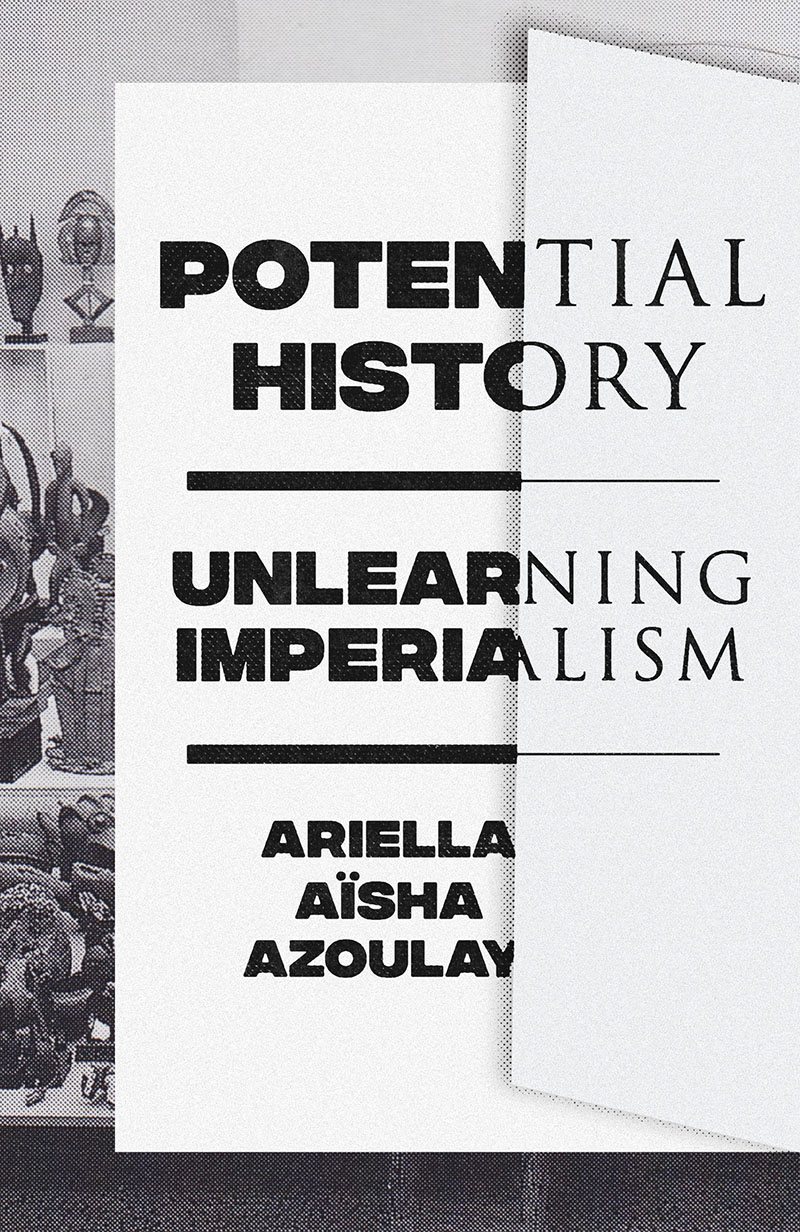Agropoetics Reader (2020)
Filed under book | Tags: · agriculture, anthropocene, art, colonialism, commons, decolonization, ecology, feminism, land, poetics

“The Agropoetics Reader unfolds as a collection of texts that informed, grounded, and nourished Soil Is an Inscribed Body. In this context of reflections and cogitations about the epistemic violence perpetrated by the West against other forms of knowledges, the project examines anti-colonial struggles of past and current land conflicts across the world in order to address the invasiveness of neo-agro-colonialism and its extractivist logics.”
With contributions by Bengi Akbulut, Yemisi Aribisala, Marwa Arsanios, Luis Berríos-Negrón, Filipa César, Marisol de la Cadena, Ayesha Hameed, INLAND, Mijo Miquel, Asuncíon Molinos Gordo, Huying Ng, Maria Ptqk, Maria Puig de la Bellacasa, Silvia Rivera Cusicanqui, Bouba Touré, Mirellle and Jennifer in conversation with Alex Ungprateeb Flynn, Hervé Yamguen, and the editors.
Edited by Elena Agudio, Marleen Boschen, and Lorenzo Sandoval, with Onur Çimen and Cleo Wächter
Publisher Institute for Endotic Research Press, Berlin, with Savvy Contemporary, Berlin, 2020
Open access
ISBN 9783981951264
235 pages
Artalk Revue, 4: The Return (2020) [Czech/English]
Filed under magazine | Tags: · central europe, colonialism, decolonization, global south, imperialism, postcolonialism

“The fourth issue of Artalk Revue on the theme of return is devoted to a critical examination of the consequences of colonialism and imperialism and the requirements of decolonization that translate into the representation of non-European cultures and exhibitions in ethnographic and archaeological museums. In her editorial, Vjera Borozan takes on the discussions on the return of artifacts to the countries of origin and the situation in cultural institutions. The other contributors outline the post-revolutionary context in Visegrad countries (Pavel Barša), the trajectory of friendship and solidarity during anti-colonial struggles in the 19th century (Ladislava Gažiová), current criticism of post-colonial studies and identity politics (Jan Sowa), advances in the process of decolonization of educational and cultural institutions (Françoise Vergès), and finally the links between the refugee and climate crises (Denise Ferreira da Silva).”
Edited by Vjera Borozan
Publisher Artalk.cz, Brno, 2020
42 pages
HTML (Czech)
PDF (Czech)
PDF (English)
Ariella Aïsha Azoulay: Potential History: Unlearning Imperialism (2019)
Filed under book | Tags: · archive, art, care, colonialism, commons, history, human rights, imperialism, israel, museum, palestine, photography, politics, sovereignty, strike, theory, violence, world

“A passionately urgent call for all of us to unlearn imperialism and repair the violent world we share
In this theoretical tour-de-force, renowned scholar Ariella Aïsha Azoulay calls on us to recognize the imperial foundations of knowledge and to refuse its strictures and its many violences.
Azoulay argues that the institutions that make our world, from archives and museums to ideas of sovereignty and human rights to history itself, are all dependent on imperial modes of thinking. Imperialism has segmented populations into differentially governed groups, continually emphasized the possibility of progress while it tries to destroy what came before, and voraciously seeks out the new by sealing the past away in dusty archival boxes and the glass vitrines of museums.
By practicing what she calls potential history, Azoulay argues that we can still refuse the original imperial violence that shattered communities, lives, and worlds, from native peoples in the Americas at the moment of conquest to the Congo ruled by Belgium’s brutal King Léopold II, from dispossessed Palestinians in 1948 to displaced refugees in our own day. In Potential History, Azoulay travels alongside historical companions—an old Palestinian man who refused to leave his village in 1948, an anonymous woman in war-ravaged Berlin, looted objects and documents torn from their worlds and now housed in archives and museums—to chart the ways imperialism has sought to order time, space, and politics.
Rather than looking for a new future, Azoulay calls upon us to rewind history and unlearn our imperial rights, to continue to refuse imperial violence by making present what was invented as ‘past’ and making the repair of torn worlds the substance of politics.”
Publisher Verso Books, London, 2019
ISBN 9781788735711, 1788735714
656 pages
Interviews with author: Jadaliyya (2019), Brad Evans (LA Review of Books, 2020), Sabrina Alli (Guernica, 2020).
Reviews: Ian Wallace (Artforum, 2020), Guy Mannes-Abbott (Third Text, 2020), Louis Rogers (review31, 2020), Stephen Sheehi (Hyperallergic, 2020), Luke Urbain (InVisible Culture, 2020), Lunettes Rouges (Le Monde blog, 2020, FR, part 2), Sascha Crasnow (Field, 2022).
Roundtable: Gil Hochberg, Zoé Samudzi, Joshua Simon, Robert Yerachmiel Sniderman (Protocols, 2020).
HTML (added on 2020-2-2)
EPUB (15 MB)

